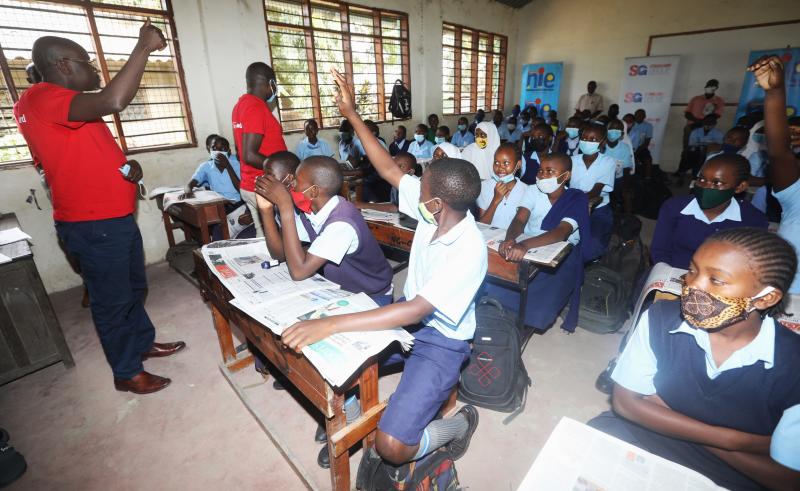×
The Standard e-Paper
Stay Informed, Even Offline

Standard Group Newspaper in Education manager Frank Otieno (left) takes a class session with Umoja Primary School class 8 pupils in Mombasa County on Frida, August 20, 2021, during the launch of the Newspaper In Education (NIE) at the school. [Kelvin Karani, Standard]
Teachers who use local languages in class during Kiswahili and English lessons are contributing to the failure of learners in these subjects.